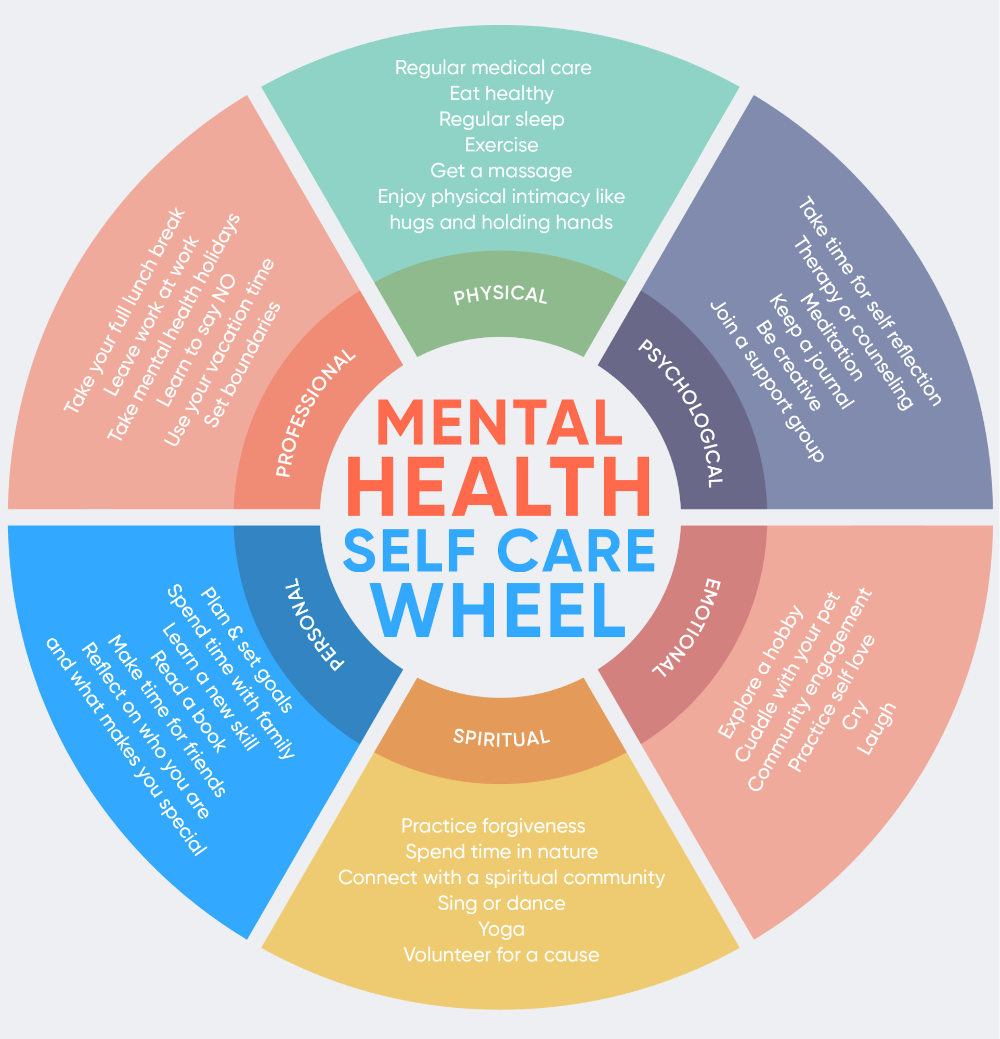In the vast spectrum of human experience, mental health stands as a focal point of importance, yet its complexities are often overshadowed by societal norms and prevailing misconceptions. The Bahá’í teachings provide a rich tapestry of insights that can nurture a healthy mind and foster a sense of spiritual well-being. In exploring these teachings, one may uncover a profound framework that addresses the intricate interplay between spiritual and mental health, providing guidance for those seeking contentment and resilience amidst life’s vicissitudes.
At the core of Bahá’í philosophy lies the understanding that the human soul is inherently pure and endowed with potential. This foundational principle underscores the significance of cultivating a positive mindset. The Bahá’í teachings advocate for the conscious development of virtues such as love, compassion, patience, and forgiveness. Engaging with these virtues not only shapes individual character but also has a communal impact, resonating through relationships and society at large. Nurturing emotional health, therefore, begins with personal transformation—a journey rooted in self-awareness and aspiration toward higher ideals.
Moreover, Bahá’í teachings emphasize the necessity of balancing material and spiritual pursuits. This duality reflects the holistic nature of human existence. An overemphasis on material concerns may lead to mental turmoil and discontent, whereas prioritizing spiritual growth can yield tranquility and fulfillment. Regular engagement in reflective practices, such as prayer and meditation, serves as a means to anchor the mind amidst the turbulence of the external world. Such practices promote clarity of thought and a heightened sense of purpose, cultivating emotional resilience and stability.
The concept of community plays a pivotal role in Bahá’í beliefs, recognizing the importance of social connections for psychological well-being. Social isolation often exacerbates mental health issues, while supportive relationships can be a powerful antidote. The teachings advocate for the creation of vibrant, inclusive communities where individuals feel a sense of belonging and acceptance. Participating in communal activities, engaging in discussions about spiritual development, and contributing to collective welfare can significantly enhance one’s mental well-being. This interconnectedness engenders a sense of unity, alleviating feelings of loneliness and despair.
Another salient aspect of Bahá’í teachings is the emphasis on the pursuit of knowledge and truth. An open-minded approach to learning not only enriches the individual but also serves as a protective factor against mental distress. The commitment to lifelong education fosters critical thinking skills and cultivates an adaptive mindset, which is crucial in navigating life’s challenges. Moreover, the pursuit of knowledge encourages individuals to examine their beliefs critically, paving the way for personal growth and deeper understanding. This intellectual engagement is instrumental in developing a robust sense of self, fostering confidence and resilience in the face of adversity.
Furthermore, the Bahá’í teachings underscore the significance of service to humanity as a pathway to spiritual fulfillment. Engaging in acts of service cultivates a sense of empathy, helping to shift the focus from self to others. This altruistic orientation can facilitate emotional healing by fostering a sense of purpose and connection. Service not only enriches the lives of others but also invokes gratitude and appreciation for one’s own circumstances. As individuals contribute to the welfare of others, they often discover a renewed sense of joy and mental clarity, reinforcing their own emotional health.
In addressing mental health, it is critical to acknowledge the role of adversity and suffering as inherent aspects of the human experience. Bahá’í teachings elucidate the concept that trials and tribulations can be transformative, providing opportunities for spiritual growth. Accepting and embracing life’s challenges with a resilient mindset allows individuals to cultivate patience and fortitude. Rather than viewing hardships as mere obstacles, they can be reframed as essential components of a soul’s journey toward development. This perspective allows individuals to navigate difficult experiences with grace and poise, ultimately fostering a healthier mental state.
It is essential to highlight the comfort derived from prayer and spiritual communion in helping to maintain mental well-being. In moments of turmoil, turning to prayer can provide solace, enabling individuals to connect with a higher power and seek guidance. This spiritual practice fosters an environment of tranquility and reassurance, alleviating feelings of anxiety and despair. The act of prayer is not merely a ritual; it serves as a therapeutic tool that facilitates emotional release and introspection, contributing significantly to overall mental health.
Lastly, the concept of gratitude is central to the Bahá’í teachings and serves as a powerful antidote to negative thinking patterns. Cultivating an attitude of gratitude transforms one’s perspective on life, encouraging individuals to focus on positive aspects rather than dwell on challenges. This shift in focus can mitigate feelings of inadequacy and hopelessness, fostering a more optimistic outlook. Regularly reflecting on one’s blessings can enhance emotional resilience, promoting mental stability and contentment.
In conclusion, the Bahá’í teachings present a comprehensive and nuanced approach to fostering a healthy mind. By advocating for the development of virtues, the pursuit of knowledge, the importance of community, acts of service, and the pivotal role of spiritual practices, these teachings offer an illuminating pathway toward mental well-being. Embracing these principles equips individuals with the tools necessary to navigate the complexities of life with grace, fostering resilience, connection, and a profound sense of purpose. In nurturing both the spiritual and the intellectual, one can achieve a harmonious balance that is essential for cultivating emotional health and overall well-being.
